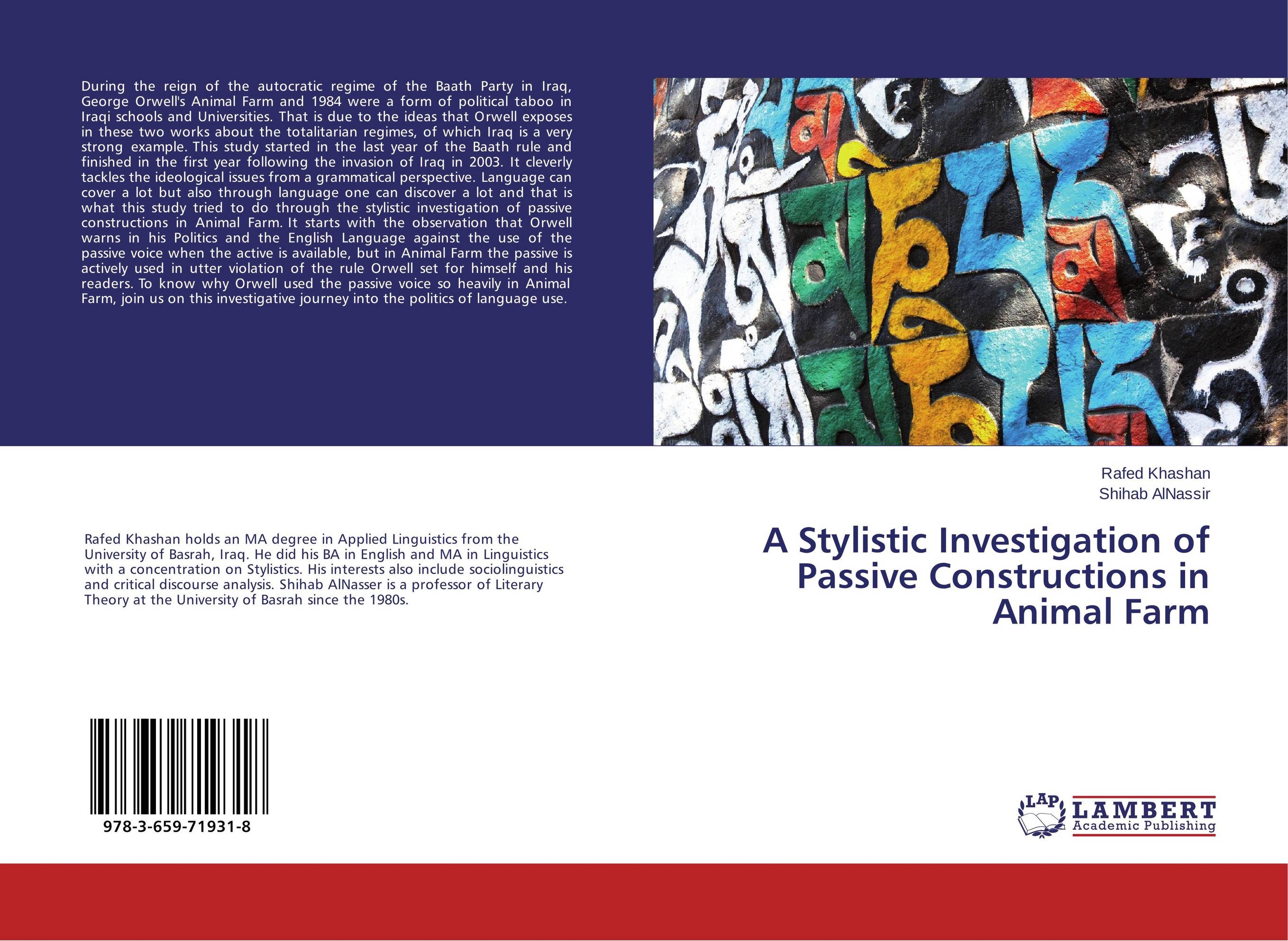| Поиск по каталогу |
|
(строгое соответствие)
|
- Профессиональная
- Научно-популярная
- Художественная
- Публицистика
- Детская
- Искусство
- Хобби, семья, дом
- Спорт
- Путеводители
- Блокноты, тетради, открытки
A Stylistic Investigation of Passive Constructions in Animal Farm.

В наличии
| Местонахождение: Алматы | Состояние экземпляра: новый |

Бумажная
версия
версия
Автор: Rafed Khashan and Shihab AlNassir
ISBN: 9783659719318
Год издания: 2015
Формат книги: 60×90/16 (145×215 мм)
Количество страниц: 76
Издательство: LAP LAMBERT Academic Publishing
Цена: 23777 тг
Положить в корзину
| Способы доставки в город Алматы * комплектация (срок до отгрузки) не более 2 рабочих дней |
| Самовывоз из города Алматы (пункты самовывоза партнёра CDEK) |
| Курьерская доставка CDEK из города Москва |
| Доставка Почтой России из города Москва |
Аннотация: During the reign of the autocratic regime of the Baath Party in Iraq, George Orwell's Animal Farm and 1984 were a form of political taboo in Iraqi schools and Universities. That is due to the ideas that Orwell exposes in these two works about the totalitarian regimes, of which Iraq is a very strong example. This study started in the last year of the Baath rule and finished in the first year following the invasion of Iraq in 2003. It cleverly tackles the ideological issues from a grammatical perspective. Language can cover a lot but also through language one can discover a lot and that is what this study tried to do through the stylistic investigation of passive constructions in Animal Farm. It starts with the observation that Orwell warns in his Politics and the English Language against the use of the passive voice when the active is available, but in Animal Farm the passive is actively used in utter violation of the rule Orwell set for himself and his readers. To know why Orwell used the passive voice so heavily in Animal Farm, join us on this investigative journey into the politics of language use.
Ключевые слова: Animal Farm, Critical Discourse Analysis, discourse analysis, Fiction, George Orwell, grammar, hegemony, ideology, linguistics, passive voice, stylistics



